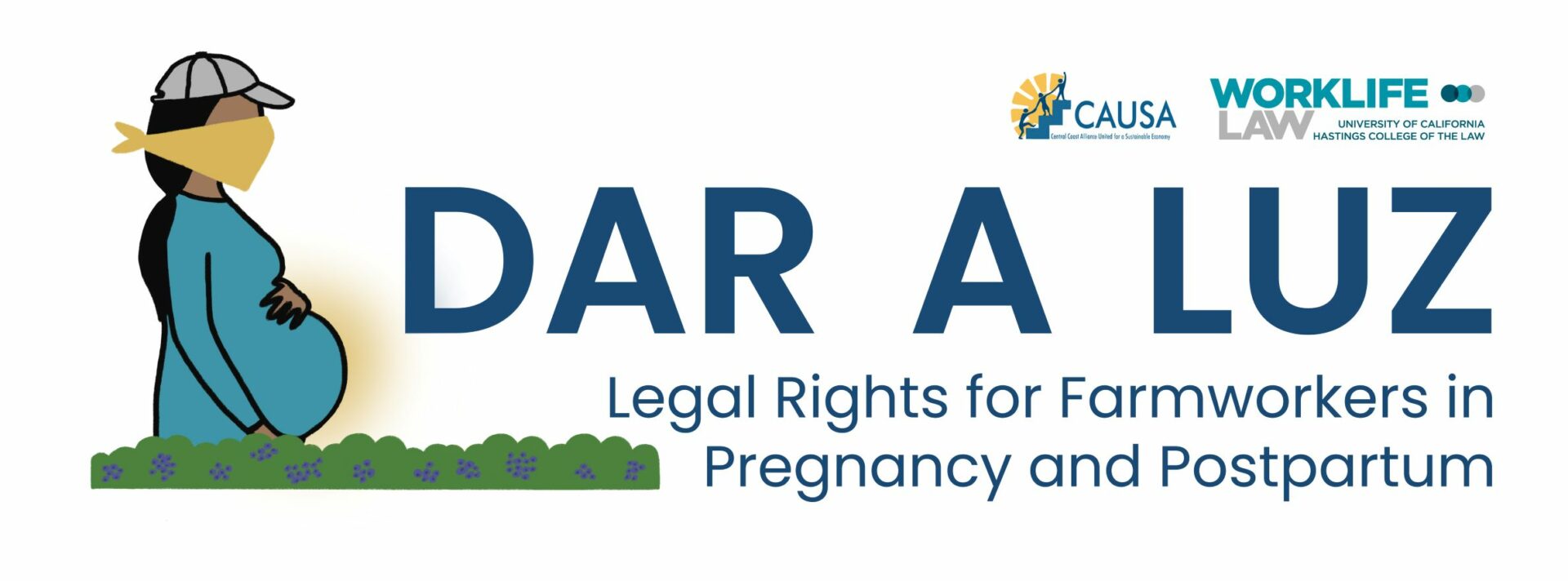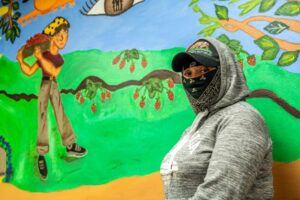 “Dar a Luz,” a commonly used idiom for “giving birth,” translates to “bring to light” – a metaphor for our project’s goal of raising awareness around the health needs and legal rights of farmworkers during pregnancy, childbirth, and nursing.
“Dar a Luz,” a commonly used idiom for “giving birth,” translates to “bring to light” – a metaphor for our project’s goal of raising awareness around the health needs and legal rights of farmworkers during pregnancy, childbirth, and nursing.
All people deserve to have healthy pregnancies and births. No one should be forced to choose between earning a paycheck and protecting their child’s health, yet often that is precisely the choice faced by California farmworkers during pregnancy and postpartum.
Agriculture is one of the most hazardous industries, with risks including falls, injuries, and exposure to extreme heat and pesticides. Research shows that prenatal pesticide exposure can cause a wide range of devastating health effects, including preterm birth, developmental disorders, and lower IQ, and many agricultural toxins pose a risk to breast/chestfeeding parents and their infants. California’s Office of Environmental Health Hazard Assessment (OEHHA) recommends that pregnant persons “limit their exposure to pesticides at all times, but especially during the first weeks of pregnancy.” ¹ Despite these risks, farmworkers typically work throughout their pregnancies, including during critical periods of fetal development, and often return to work as nursing parents just weeks after giving birth out of financial necessity.
California law provides farmworkers with other options, regardless of immigration status: paid disability leave to avoid exposure to toxic pesticides and other hazards, workplace accommodations to stay healthy and safe, and paid family leave to promote maternal and infant health. But farmworkers have historically been shut out of these programs due to language and access barriers, unavailability of information for workers and their medical care providers, and racism.
Dar a Luz – a collaboration of the Center for WorkLife Law and Central Coast Alliance United for a Sustainable Economy (CAUSE) – is breaking down these barriers and empowering all farmworkers to benefit from their legal rights.
Contact Dar a Luz : daraluz@worklifelaw.org
¹ California Environmental Protection Agency, Office of Environmental Health Hazard Assessment, Essential Information for Healthcare Providers: Pregnant Agricultural Workers and Pesticides, https://oehha.ca.gov/media/downloads/pesticides/general-info/pregnancypesticidesinfosheet.pdf

